India’s World Test Championship campaign has reached a point where every session, every decision, and every mistake carries heavy consequences. After a damaging 30-run defeat to South Africa in Kolkata, the margin for error has evaporated completely. India now sit on the fourth spot in the WTC table, leaving them with a daunting task: secure at least seven wins from their remaining ten matches to stay alive in the qualification race.
The numbers reflect the pressure. India currently hold 52 points from eight matches, translating into a 54.17% points percentage. With the top two sides likely needing more than 64% to book their place in the final, the road ahead is tight, demanding both consistency and resilience. Shubman Gill and his team must now navigate a demanding schedule, a fired-up set of opponents, and their own fluctuating form to keep Lord’s 2027 in sight.
The reality is straightforward yet unforgiving: India must almost sweep their home series and find a way to survive overseas. The remaining 10 Tests across three countries will define whether India continue as contenders or fade away as a cautionary tale of missed opportunities.
Where India Stand After the Kolkata Setback
The Eden Gardens defeat exposed vulnerabilities that had remained hidden behind momentary brilliance. India, who once appeared unstoppable at home, now face tougher scrutiny, especially after losses that highlighted the team’s inconsistency in red-ball cricket.
At present, India’s scoreboard reads four wins, three losses, and one draw. Despite producing several top performers, the collective results have been far from dominant. Other teams such as Australia, South Africa, and Sri Lanka have maintained stronger points percentages, pushing India further into a corner.
The updated WTC standings after the Kolkata Test reflect this clearly. With 10 Tests remaining, every match has become a make-or-break opportunity, and India’s climb is steep from here.
India’s Remaining Fixtures and the Challenges Ahead
The calendar ahead is loaded with high-stakes encounters. Each series presents unique threats, and India must navigate them with precision if they hope to stay in the running. The remaining fixtures offer 120 points in total, making every single result vital.
- South Africa (Home) – 1 Test in Guwahati
- Sri Lanka (Away) – 2 Tests
- New Zealand (Away) – 2 Tests
- Australia (Home) – 5 Tests
Across the full cycle, India will play 18 Tests and compete for a maximum of 216 points. With 52 points already secured, India must earn at least 88 more to stay above the projected cutoff.
The difficulty lies not only in tough opponents but in unpredictable conditions—spinning tracks at home, seaming conditions in New Zealand, and pressure-cooker matches against Australia that define modern Test cricket rivalries.
How Many Wins India Actually Need: The Math Explained
India’s qualification chances boil down to a simple formula: WIN. The WTC points percentage system rewards outright victories more than consistency, meaning India must secure at least seven wins out of their remaining 10 Tests.
The calculations are based on a denominator of 216 points. With different combinations of wins, losses, and draws, India’s final PCT will shift significantly. Here is a simplified breakdown of possible outcomes:
| Wins | Draws | Losses | Final Points | PCT% |
| 7 | 1 | 2 | 140 | 64.81% |
| 8 | 0 | 2 | 148 | 68.52% |
| 6 | 2 | 2 | 136 | 62.96% |
| 5 | 3 | 2 | 132 | 61.11% |
A clear pattern emerges: seven wins keep India on the border of qualification, eight wins lock it in, and anything less than six wins almost certainly eliminates them.
The probable qualification cutoff this cycle is estimated around 64–68%, considering the form of top teams. India must therefore push their tally upward with minimum slip-ups, especially at home.
The ‘Bauna’ Controversy and Its Aftermath
The Kolkata Test also generated headlines for reasons beyond cricketing skill. A stump-mic conversation involving Jasprit Bumrah and Rishabh Pant was interpreted as referring to Temba Bavuma as "bauna", sparking widespread discussion.
The word, often used to describe a shorter-statured person, quickly drew criticism for being disrespectful. Bavuma, however, responded on the field with remarkable composure, guiding his team with poise.
At the end of the match, Bumrah was seen speaking to Bavuma in what many interpreted as an attempt to clear the air. Regardless of the interpretation, the episode highlighted the intense scrutiny facing players today and the importance of maintaining respect even in heated competition.
India’s Core Players and the Need for Consistency
Despite setbacks, India’s roster remains stacked with world-class talent. The top four run-scorers in the current WTC cycle are all Indians, showcasing individual brilliance that has not always translated to team results.
Shubman Gill, Yashasvi Jaiswal, Virat Kohli, and Shreyas Iyer form a formidable batting core. Meanwhile, Mohammed Siraj leads all bowlers with 37 wickets, with Jasprit Bumrah also delivering match-winning spells.
Yet, WTC qualification demands something different—consistency over flashiness. India’s recent habit of dominating one Test and collapsing in the next has proven costly, and the remainder of the cycle allows no such lapses.
The Realistic Roadmap to the WTC Final
India’s path forward is a delicate balance of strategy, form, and mental toughness. To achieve the required seven wins, India must:
- Win the final Test against South Africa at home
- Win the series away in Sri Lanka, ideally 2–0
- Split or win the series in New Zealand
- Win at least three of five Tests against Australia at home
This combination yields seven wins, one draw, and two losses—a tally that comfortably touches approximately 64.81% PCT, enough to keep India firmly in the qualification zone.
The challenge is steep but not impossible. India have the squad depth, home advantage, and experience to mount a comeback, but the execution must be flawless from here onward.
Conclusion: A Battle of Skill, Nerves, and Numbers
India’s journey toward the WTC final has transformed into a mathematical and psychological test. Every match now carries the weight of a knockout game. With the remaining 10 Tests set to define the next chapter of Indian cricket, Shubman Gill and his side must embrace discipline, adaptability, and consistency.
If India execute their plans and avoid costly lapses, their path to Lord’s 2027 remains open. But the WTC does not reward reputation—it rewards results, and India must deliver them now.
Also Read: Bavuma Shuts Down ‘Bauna’ Row as SA Shock India at Home


Disclaimer
Possible11 is a sports news and analysis platform designed purely for entertainment and educational purposes. All match previews, player insights, and team analyses are based on publicly available information and expert opinions. We do not promote or support betting, gambling, or real-money gaming in any form. Users are encouraged to enjoy our content responsibly and use it for informational purposes only.
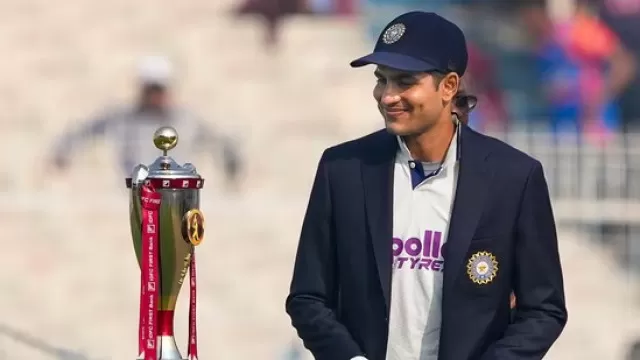
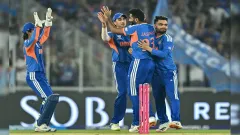
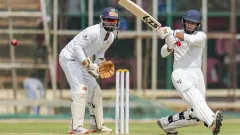
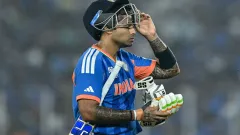

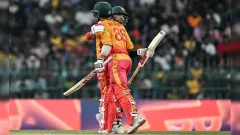


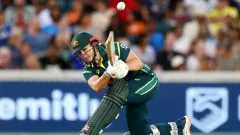


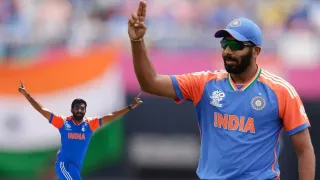




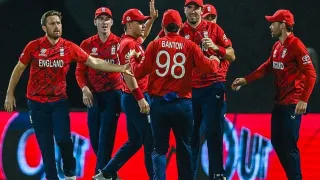
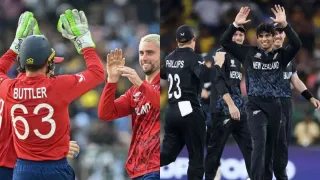
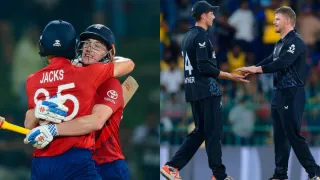


Give Your Feedback